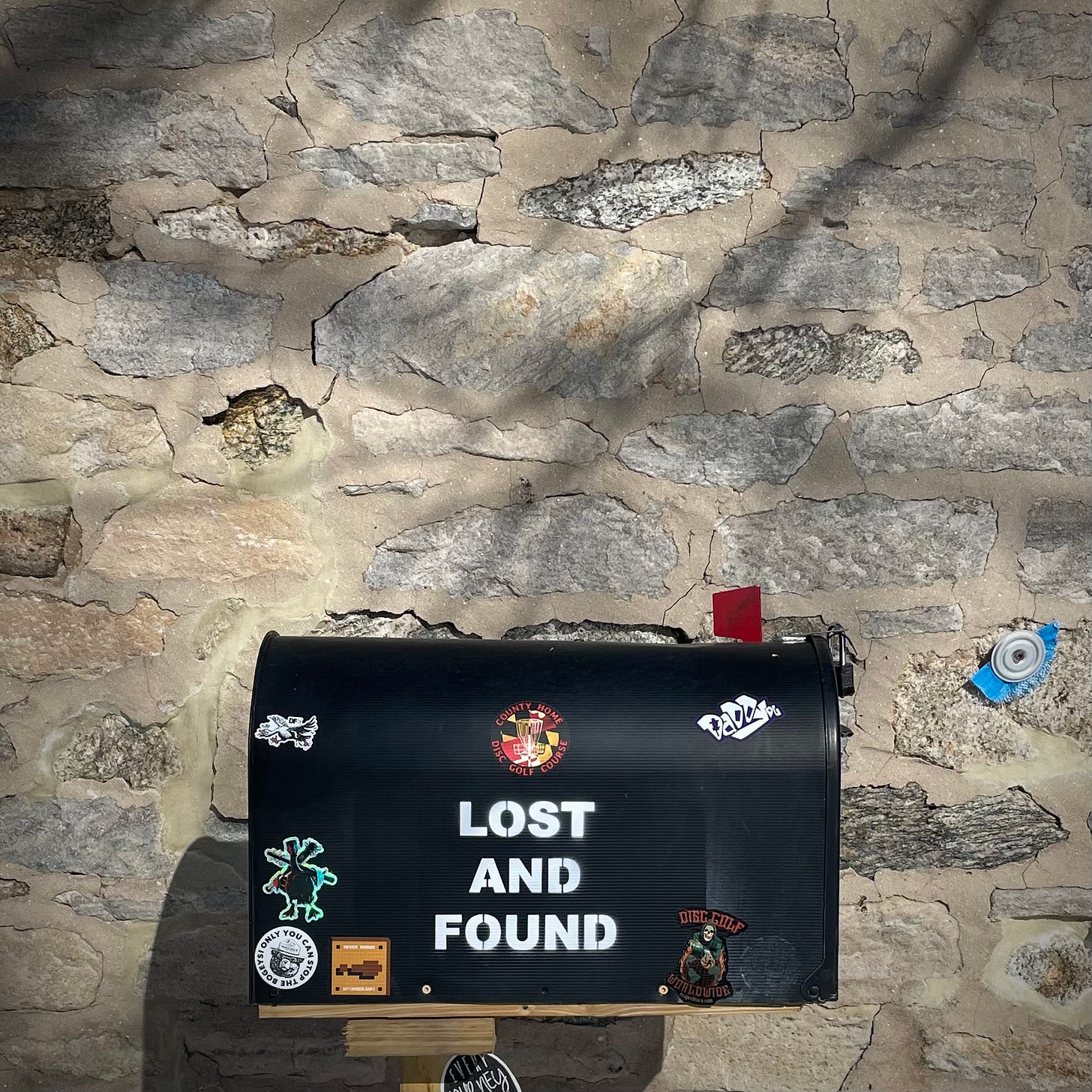Lost and Found
The list: a place for your stuff
There was one in the kindergarten classroom, one at the library, one at the pool, where if you couldn’t find your goggles, you went to see the ladies who sat in the shade by the snack bar. They would let you root through the lost-and-found box. You might find a stray flipper, a set of keys, some lip balm, cheap sunglasses. You might find your goggles. Or you might not. Maybe they were meant to be lost. So many things seem to be.
Taking inventory
Values are relative. But thinking about the stuff that matters to us, what we’ve lost or found, what we hope we don’t lose and feel lucky when we find, can become an exercise in understanding those values. We all have different ideas about what we consider trash and treasure.
Speaking of treasure, the MacArthur “Genius” award comes with a cash prize of about half a million bucks. In 2003, this prize went to the master of micro-fiction, Lydia Davis, for her ability to create well-wrought little stories like the next one. Sometimes when I find myself going from place to place looking for my wallet or my keys, I think of this story (yes, this is a complete story):
“Lost Things” by Lydia Davis
They are lost, but also not lost but somewhere in the world. Most of them are small, though two are larger, one a coat and one a dog. Of the small things, one is a certain ring, one a certain button. They are lost from me and where I am, but they are also not gone. They are somewhere else, and they are there to someone else, it may be. But if not there to someone else, the ring is, still, not lost to itself, but there, only not where I am, and the button, too, there, still, only not where I am.
Q: What makes this prose and not poetry?
A: those formal elements we associate with fiction—a sense of character and desire; the dilemma that evokes a narrative; the bare bones of story.
The voice could be that of a very obsessed poet or a lawyer who thinks in a circular sort of way, someone who methodically lists details.
Make a list
List-making is a good brain exercise. It helps you get organized. List the things you need from the store, the goals you wish to obtain; list the pros and cons, the reasons why or why not. Build a plan of action—action verbs, phrases pairing up and rubbing against each other, drawing together like magnets, like lines of poetry.
The point is to start writing, and sometimes the easiest way to do that is with a good old-fashioned list. After all, that which we do not have words for is lost. And days without a list seem filled with the potential for disaster. But the art of list-making is not hard to master. Just ask Elizabeth Bishop:
One Art
The art of losing isn’t hard to master; so many things seem filled with the intent to be lost that their loss is no disaster. Lose something every day. Accept the fluster of lost door keys, the hour badly spent. The art of losing isn’t hard to master. Then practice losing farther, losing faster: places, and names, and where it was you meant to travel. None of these will bring disaster. I lost my mother’s watch. And look! my last, or next-to-last, of three loved houses went. The art of losing isn’t hard to master. I lost two cities, lovely ones. And, vaster, some realms I owned, two rivers, a continent. I miss them, but it wasn’t a disaster. Even losing you (the joking voice, a gesture I love) I shan’t have lied. It’s evident the art of losing’s not too hard to master though it may look like (Write it!) like disaster.
_
From keys to hours to places and names and continents and finally lovers—you—the greatest loss of all. Notice the way these items are ordered. We progress from the trivial to the profound. Just like life: loss accumulates in seriatim—in a series, farther and faster. Of course, you may list as many details as you like, but finding meaning in them is something else.
Prompt 1: List the contents of your car, trunk, closet, junk drawer, etc. and rank them according to value.
Prompt 2: Try describing a random trivial thing you own without saying what it is. Is there a story connected to it? Who else might be involved? Where did it come from? Why do you have it? What does it matter?


